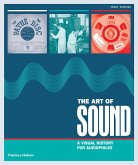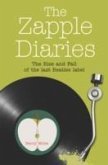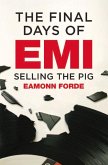In 1972, David Ackles's third album, American Gothic, was released to a flurry of press plaudits declaring it to be 'the Sgt Pepper of folk' and one of the greatest records ever made. Yet the album, like its two predecessors, failed to sell, and after one more record, its creator simply vanished. He found work, raised a family, and died a couple of decades later, having never made another record. Today, Ackles's music is largely consigned to the streaming netherworld. It is yet to be properly repackaged and reappraised, and he remains largely unknown. But there is no middle ground. You either love him or you've never heard of him. His admirers range from Black Flag's Greg Ginn to indie polymath Jim O'Rourke to Genesis drummer turned platinum-selling solo artist Phil Collins. In 2003, when Elvis Costello interviewed Elton John for the first episode of his television show Spectacle, the two spoke at some length, and with palpable respect, about Ackles's great talent, before performing a duet of his 'Down River'--the same song Collins had selected for Desert Island Discs a decade earlier. David Ackles did not make rock'n'roll music, and Down River is not a rock'n'roll story. It is a search for an artist who got lost. Not a pretty-good, I-wonder-what-happened-to-him sort of talent, but a man revered as one of the greats. Drawing on conversations with Ackles during the last year of his life as well as full access to archive material, it positions him as one of the great maverick talents of popular music--an equal of Scott Walker and Tom Waits. It seeks to understand the disconnect between his obvious gifts and his commercial failure, and wonders about the fickleness of fame and cult status. How does this process of retrospective recognition work, and why does it happen for some but not others? Was Ackles's music just too strange, or might his time yet come? And what do the answers to these questions say about the mythmaking of the popular music industry--and about us, the audience?
Hinweis: Dieser Artikel kann nur an eine deutsche Lieferadresse ausgeliefert werden.
Hinweis: Dieser Artikel kann nur an eine deutsche Lieferadresse ausgeliefert werden.








